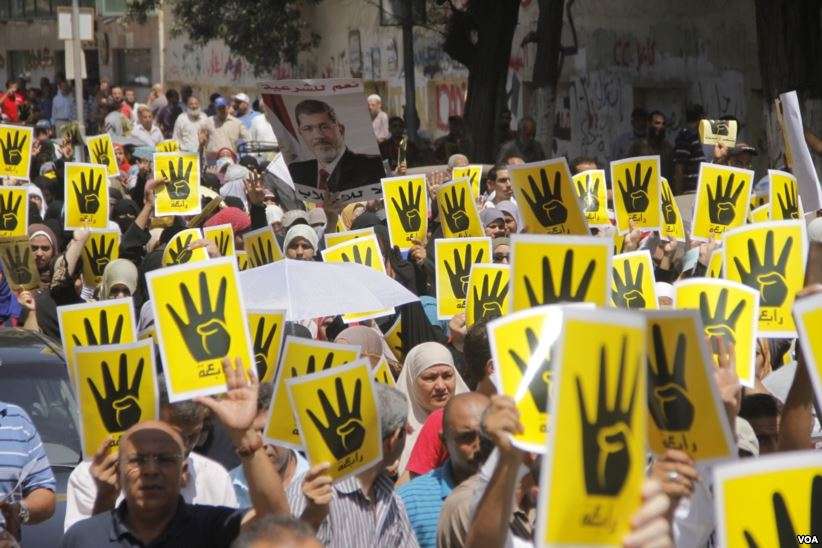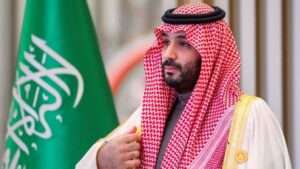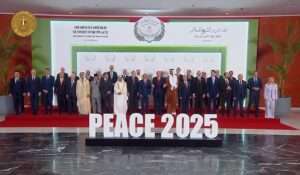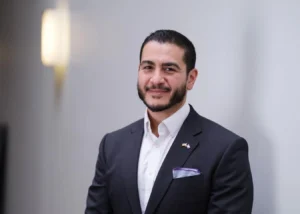By Prof. Nabil Mikhail
In a bold and controversial move, the United States has designated the Muslim Brotherhood as a terrorist organization, sparking widespread debate about the motivations and implications of this decision. This step comes amid growing security and political concerns over the group’s activities within U.S. borders, where it is accused of exploiting civil liberties to expand its influence through advocacy and charitable organizations operating under legal fronts. This article explores the reasons behind this designation, the key axes it rests upon, and the media messages aimed at clarifying this move to the public.
For decades, the Muslim Brotherhood has operated in the United States through a network of advocacy and charitable organizations that present themselves as civil society entities focused on serving the Muslim community and promoting social integration. However, security reports suggest that many of these organizations serve as legal fronts, masking activities tied to the global Brotherhood network. These centers, often promoting charitable and cultural initiatives, are allegedly used to expand the group’s political and ideological influence within American society.
For instance, activities such as fundraising under the guise of charity have raised concerns, with allegations that funds are funneled to projects supporting the Brotherhood’s global agenda. Additionally, these organizations play a role in disseminating ideological narratives aligned with the Brotherhood’s vision, which emphasizes establishing a political system rooted in rigid interpretations of religion. This subtle infiltration into American society has alarmed authorities, who view these activities as a long-term threat to national security.
The U.S. State Department’s decision to designate the Muslim Brotherhood is not an impulsive or emotional reaction but a response to concrete security indicators. Reports indicate that the group has exploited the freedom of civil society operations in the U.S. to bolster its influence, leveraging the democratic system that allows organizations to operate freely. However, this exploitation has raised fears that the Brotherhood is building a grassroots and organizational base that could be used for extremist political purposes.
Politically, the designation reflects a growing awareness that the Brotherhood is not merely a religious or social movement but a political entity with long-term goals that transcend national borders. Its ties to the global Brotherhood organization, which pursues strategies to alter political systems in other countries, make it a source of concern for the United States, particularly amidst the broader security challenges facing the region and the world.
A key pillar of this designation is the ideological and organizational connection between the Muslim Brotherhood and certain terrorist organizations. While the Brotherhood portrays itself as a non-violent movement, evidence suggests that its ideology has inspired extremist groups like al-Qaeda and ISIS. For example, Sayyid Qutb, a prominent Brotherhood theorist, is considered a primary ideological influence for many jihadist movements due to his writings advocating for systemic change through force.
Organizationally, reports indicate that some individuals associated with Brotherhood networks in the U.S. or abroad have later engaged in or indirectly supported terrorist activities. While not always direct, this connection highlights the Brotherhood’s role within a broader ecosystem of ideological extremism that threatens global security.
It is critical to emphasize that designating the Muslim Brotherhood does not target Muslims as a religious or cultural community but focuses on a political organization that uses religion as a cover for its agenda. The Brotherhood does not represent Islam or Muslims as a whole; it is a political movement with specific objectives. This distinction is essential to avoid misinterpretations that could lead to unfair generalizations about Muslim communities in the U.S. and beyond.
The designation aims to protect American civil society, including Muslims, from the influence of extremist ideologies that could undermine social cohesion. By imposing restrictions on the Brotherhood’s activities, the U.S. seeks to ensure a safe and stable environment for all.
A primary goal of this designation is to safeguard American youth from ideological polarization and recruitment. The Brotherhood has demonstrated an ability to target young people through seemingly benign advocacy and educational programs, which subtly promote extremist ideas. This recruitment not only threatens individuals but also risks undermining the democratic and pluralistic values upon which the United States is built.
Through this designation, U.S. authorities aim to disrupt these activities, emphasizing that the goal is to protect both national security and civil society. This move is not merely a reaction to current threats but a proactive strategy to prevent future risks arising from the Brotherhood’s unchecked operations.
Designating the Muslim Brotherhood as a terrorist organization in the United States reflects a growing recognition of the challenges posed by extremist political entities that exploit religion and civil liberties to advance their goals. Through this decision, the U.S. aims to protect its national security, preserve the integrity of its civil society, and shield its youth from ideological extremism. While the move may spark debate, it underscores that the target is not a religion or a community but a political organization that threatens democratic values and global stability. Ultimately, the goal remains to build a safe and just society for all.















